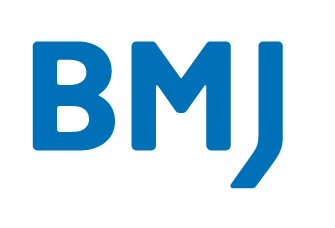Too much medicine: from evidence to action
Date published: 04 December 2013

BMJ is a healthcare knowledge provider that aims to advance healthcare worldwide by sharing knowledge and expertise to improve experiences, outcomes and value
This week, The BMJ announces a call for research papers for a special theme issue in 2014 on overdiagnosis and overtreatment - to highlight the harms and waste associated with transforming more and more ordinary life into disorders, dysfunctions, and diseases.
It follows the BMJ’s ‘Too Much Medicine’ series and the inaugural Preventing Overdiagnosisconference in September, which brought together more than 320 people from 30 countries to identify causes and develop solutions.
The conference identified several key priorities, including strengthening the science, educating healthcare professionals and informing the public, combating incentives that turn people into patients, and changing how diseases are defined and broadened.
Professor Allen Frances, chairman of the taskforce for the Diagnostic and Statistical Manual of Mental Disorders (DSM-IV) - used around the world to classify mental disorders – described it as “easily the most important meeting I ever attended.”
To build on this momentum, the second Preventing Overdiagnosis conference has now been announced, hosted by the Centre for Evidence Based Medicine at University of Oxford from 15-17 September 2014, and again supported by The BMJ.
The BMJ’s theme issue will coincide with the conference.
Keynote speakers will include Dr Iona Heath, former president of the Royal College of General Practitioners, and genetics expert Sir John Burn, who will explore the risks associated with the explosion in genetic testing.
Dr Fiona Godlee, BMJ Editor in Chief, said: “We know that many people are overdiagnosed and overtreated for a range of conditions, including prostate cancer, asthma, and chronic kidney disease. Our theme issue aims to build on that evidence, increase awareness of the true benefits and harms of treatments, and explore ways to wind back medical excess, safely and fairly.
The notion that ‘more is always better’ is looking increasingly unhealthy – we look forward to receiving submissions that will help tackle the threat to health and the waste of money caused by unnecessary care.”
Do you have a story for us?
Let us know by emailing news@rochdaleonline.co.uk
All contact will be treated in confidence.
Most Viewed News Stories
- 1Art exhibitions to celebrate the UN International Year of Co-operation
- 2Schools in Rochdale borough to become vape free settings
- 3Final phase of Rochdale Town Hall redevelopment tabled
- 4Historic England ‘disappointed’ by the spat over Hopwood Hall
- 5Innovative wastewater management system deployed for Littleborough flood defence works
To contact the Rochdale Online news desk, email news@rochdaleonline.co.uk or visit our news submission page.
To get the latest news on your desktop or mobile, follow Rochdale Online on Twitter and Facebook.

